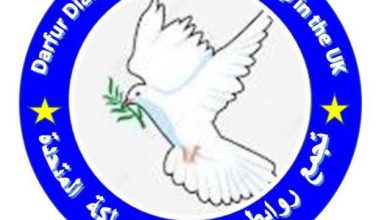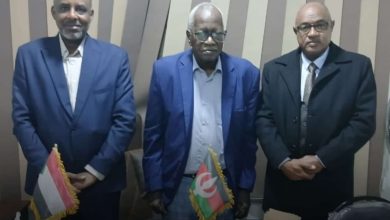News
RSF Militia Cuts the Fibre and Arrest Engineers at Telecommunications Companies

Sudan Events – Agencies
The Rapid Support RSF militias arrested the engineering work teams charged with managing the communications networks of the three companies (Zain, Sudani, and MTN), took away their mobile phones, and threatened to kill them unless they responded to their instructions to cut off Internet services from the states of Sudan.
(The Sudan Truth) was informed from reliable sources (which refused to reveal (names) that the militias occupied the buildings of the three companies in Khartoum, took control of their main divisions, asked the engineers to restore service to the states of Darfur, and refused to listen to the technical and engineering explanations provided by the engineers, as they confirmed that the interruption of service to some of the states of Darfur occurred due to technical problems and difficulties, and was not done intentionally.
Including the lack of fuel necessary to operate the offices and communications towers of the three companies in some areas of Darfur, addition to the sabotage that affected the communications towers there.
The newspaper added that the militia forces ordered engineers to stop service from the River Nile and Red Sea states before obliging them to completely disable telephone communications and the Internet.
According to the newspaper, the rebel forces had hired foreign experts to disrupt the main exchange of the National Telecommunications Authority and Sudatel in Khartoum South.
They also cut the fiber line heading to the city of Port Sudan, which led to the disruption of Internet services and the interruption of communications to all parts of the Red Sea State and other parts of the country.
A wide area of the states of Kassala and Gedaref, before the country entered into a complete blackout of both communications and Internet services, with the exception of the MTN network, which continued to operate weakly in some areas of Khartoum and Khartoum North (Bahri) , which caused the disruption of state agencies, commercial banks, and paper extraction centers. Identification inside and outside Sudan.
Sudan Truth’s follow-ups reported that Sudatel engineers succeeded in restoring service to some areas.
The newspaper pointed out that millions of citizens were negatively affected by the new crime committed by the Rapid Support RSF militias, particularly since a large segment of them depend for their livelihood on financial aid received from Sudanese working outside the country via phone banking applications (such as Bankuk,and Fawry) through which buying and selling is done in most parts of the country.
In Sudan, citizens also complained of their inability to communicate with their families to check on them.
The services provided by some embassies and consulates located in the city of Port Sudan also stopped as they were unable to provide travel visas to those requesting them, while Port Sudan Airport continued its services, taking advantage of the availability of satellite Internet service (Star Link). In it, the commercial markets also witnessed a major stagnation in sales activity due to the disruption of banking services related to the Internet, and (Sudan Truth) learned that the engineers of the National Communications Authority are working day and night to address the crisis.
The newspaper confirmed that the three telecommunications companies had to enter into dialogue with the rebels to demand that they restore service, but it did not succeed in dissuading them from cutting off the Internet and communications from most parts of Sudan.
The newspaper learned that the rebels threatened the three companies to destroy their entire infrastructure, service centers, and main divisions unless they responded to their demands aimed at restoring Services to Darfur and cutting it off from the Red Sea and particularly River Nile.



